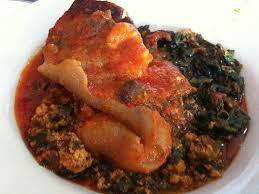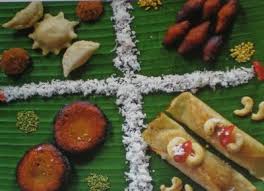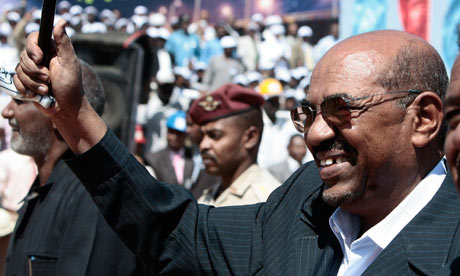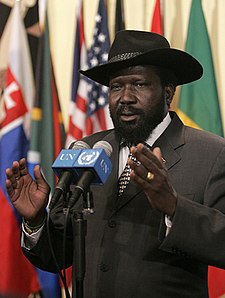 A "Norman Rockwell type" Christmas setting
A "Norman Rockwell type" Christmas settingThe US or the Western world is not alone in celebrating Christmas. From Wikipedia, "Christmas Day is celebrated as a major festival and public holiday in countries around the world, including many whose populations are mostly non-Christian. In some non-Christian countries, periods of former colonial rule introduced the celebration (e.g. Hong Kong); in others, Christian minorities or foreign cultural influences have led populations to observe the holiday. Countries such as Japan and Korea, where Christmas is popular despite there being only a small number of Christians, have adopted many of the secular aspects of Christmas, such as gift-giving, decorations and Christmas trees..."
The Christmas celebration is not limited to December 25, nor to gift-giving. "Eastern Orthodox national churches, including those of Russia, Georgia, Egypt, Ukraine, the Macedonia, Montenegro, Serbia and the Greek Patriarchate of Jerusalem mark feasts using the older Julian Calendar. December 25 on that calendar currently corresponds to January 7 on the more widely used Gregorian calendar." Parades, feasts, and singing are other methods to celebrate the holiday.
Christmas is criticized by many Western Christians as too commercialized, too harried, too full of expectations and resulting depression. Its origins are debated over it being an actual pagan celebration of the winter solstice. Religiously, of course controversy rages over the religious aspects, a miracle of a Virgin birth, or for that matter the more cosmic implications of God sending His Son to earth as a Savior for humankind.
Yet it does not prevent believers from true celebration, and enjoyment if only for a brief time by all of a glimpse of kinder human possibility.
NigeriaNigerians have special traditions they follow to celebrate Christmas. Almost everyone goes to church on Christmas Day. Weeks before the day, people buy lots of hens, turkeys, goats and cows. Children hover around the beasts, taunting, and mostly gawking at them. There are feverish preparations for travel, holidays, and exchange of gifts, caroling and all manner of celebrations.
On Christmas Eve, traditional meals are prepared. In Yoruba, such meals usually include Iyan, (pounded yam) eba or amala, served with peppery stewed vegetables. People find themselves eating this same meal three to four times on that day, as they are offered it at every house they visit; and according to Yorùbá customs, it was considered rude to decline to eat when offered food.
 Nigerian IyanBangladesh
Nigerian IyanBangladeshIn Bangladesh, Christmas Day is celebrated by Bengali Christians as Boro Din, or Great Day. The day is a national holiday and is officially celebrated by the President of Bangladesh in Bongo Bhaban. Bengali Christians greet family and friends by saying Shubho Boro Din, or Greetings of the Great Day, and offer traditional sweets and pithas (traditional Bengali cakes). Their homes are decorated with local Christmas handicrafts while artificial stars signifying the Star of Bethlehem are hung on rooftops. Christmas celebrations are also popular with the urban middle class in the country with hotels, cafes, restaurants and theme parks hosting festivities and special events.
 Bangladeshi pithasJapan
Bangladeshi pithasJapanEncouraged by the commercial sector, the secular celebration of Christmas is popular in Japan, though Christmas is not a national holiday. Gifts are exchanged and children's presents are left next to their pillow at night. Christmas parties are held on and around Christmas Day; the Japanese type of Christmas cake is often a white whipped cream cake with strawberries. The first recorded Christmas in Japan was celebrated with a Mass held by Jesuit missionaries in Yamaguchi Prefecture in 1552.
 Japanese Christmas white cakeThe Czech Republic and Slovakia
Japanese Christmas white cakeThe Czech Republic and SlovakiaChristmas Eve (24 December) is celebrated as 'Štědrý den', which means "Generous Day", when the gifts are given in the evening. However, 25 and 26 December are also public holidays. According to tradition, gifts are brought by Ježíšek, or "baby Jesus". Many very old Christmas traditions are followed, mostly for fun. People usually fast on Christmas Eve until a ceremonial dinner is served, in order to be able to see a "golden piglet", which brings good luck. Carp and special homemade potato salad are a traditional dish for the dinner. The gifts are secretly displayed under the Christmas tree by one of the adults, usually just before or during dinner. Children have to wait for the ringing of a christmas bell (one of the decorations on the christmas tree) - the sign that 'Ježíšek' - little Jesus has just passed by - to run for the presents. That happens at the end of their Christmas dinner (again ringing done by one parent sneaking out).
 Yum! Carp and potato salad!Venezuela
Yum! Carp and potato salad!VenezuelaIn Venezuela Christmas is celebrated as a religious occasion. Presents are brought by “El Niño Jesus” (Baby Jesus) instead of “Papá Noél” (Santa Claus), that still has an important role during this season. The unofficial start of the Christmas festivities is after the celebrations of "Feria de la Chinita", second half of November. The origin of this festivity is the cult to Virgin Mary of Chiquinquirá, when various religious activities, processions, and music festivals with the typical "Gaita (music style)" to honor "La Chinita"(nickname of this Virgin). After this festivity, the Christmas Spirit is every where and many activities take place including musical events of Gaita, firework displays, and many other events planned by other cities across the country.
In many cities, small rural towns and neighborhoods get together for the "patinatas" night festivals where kids go and play with skateboards, roller blades and bicycles. Also still in some neighborhoods there is the "Parranda" where people go from one house to house with music and Christmas songs, in exchange for food and drinks. In the mountainous Venezuelan Andes, villagers carry an image of "baby Jesus" called "Paradura del Niño." Children write request letters to Baby Jesus, and the presents are sent by said baby at midnight, then most people have a party which goes on until sunrise.
 Hallacas, the Venezuelan Christmas specialty made of a corn-and-meat filling (and at times raisins, nuts, olives and hard-boiled eggs) wrapped tightly in a banana leaf.
Hallacas, the Venezuelan Christmas specialty made of a corn-and-meat filling (and at times raisins, nuts, olives and hard-boiled eggs) wrapped tightly in a banana leaf. This blogger finds comfort and joy in an old Christmas song,
"I heard the Bells on Christmas Day"I heard the bells on Christmas day
Their old familiar carols play
And mild and sweet their songs repeat
Of peace on earth good will to men
And the bells are ringing
Like a choir they're singing
In my heart I hear them
Peace on earth, good will to men
And in despair I bowed my head
There is no peace on earth I said
For hate is strong and mocks the song
Of peace on earth, good will to men
Then rang the bells more loud and deep
God is not dead, nor doth He sleep
The wrong shall fail, the right prevail
With peace on earth, good will to men
 Another terror attempt
Another terror attempt
























